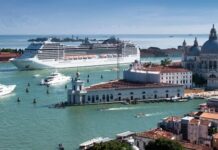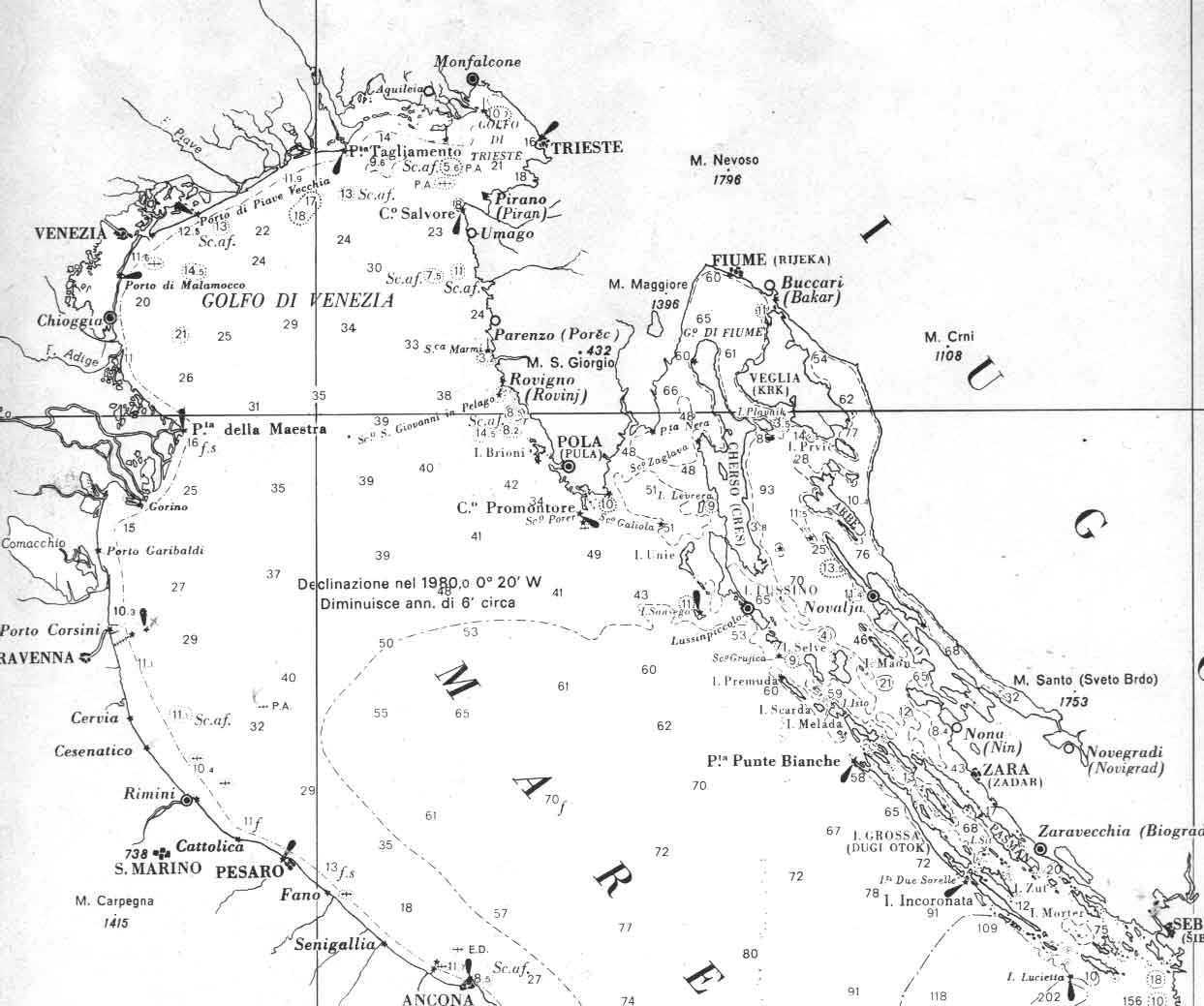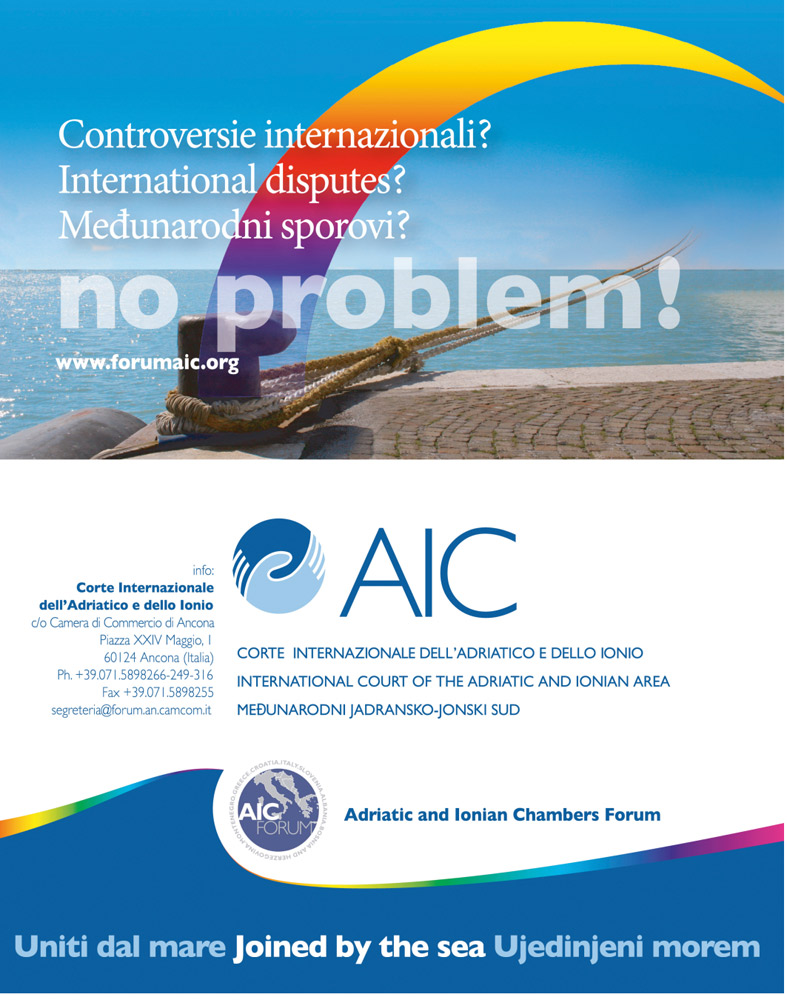Un percorso in itinere che non è ancora arrivato a destinazione, pur se ormai sembra essere delineato. E’ quello della riforma della legge 84/94, nota come legge di riforma dei porti, di cui si è parlato in un incontro con il sen. Marco Filippi, Pd, della Commissione trasporti e Comunicazioni del Senato, svoltosi a Ravenna nei locali della Compagnia portuale. Non solo il punto della situazione, ma un’ulteriore tappa di ascolto per il senatore che nei vari porti raccoglie impressioni e suggerimenti degli operatori che hanno visto all’opera la legge con i suoi limiti, le sue positività, dove ce ne sono, le sue carenze.
“La legge 84/94 così com’era ha funzionato – ha affermato ad apertura lavori il presidente della Compagnia portuale di Ravenna, Roberto Bubboli, che ha coordinato gli interventi dell’incontro –
Anche il porto di Ravenna con questa legge ha funzionato e meglio sarebbe stato se questa legge fosse stata applicata in tutti i porti. Certo alla luce di una crisi che morde e attanaglia la portualità italiana, l’impianto di questa legge non sembra essere la cosa più urgente: i porti hanno bisogno di cose concrete!”.
Una sollecitazione concreta, di quelle che il sen. Filippi sta cercando attraverso i porti, per capire il reale indirizzo da dare a questa legge alla quale si sta lavorando in maniera unitaria, con opposizione e maggioranza, tutti d’accordo. “La legge è giudicata positiva da tutti – ha sottolineato – perché ha consentito lo sviluppo di traffici e di infrastrutture, anche se non sono ancora sufficienti. Il nostro approccio a questo ennesimo tentativo di riforma guarda alla riforma come a un processo di manutenzione ordinaria. L’impianto ha funzionato un po’ ovunque, ma con realtà interpretative a macchia di leopardo. Il legislatore deve definire ora criteri di omogeneità! Non è stato facile, con un ministro che inizialmente ha esordito non brillantemente con la classificazione dei porti di serie A e di serie B, facendo saltare l’equilibrio che si era raggiunto con questa legge.
C’era una proposta di rinnovo, da parte del sen Grillo, già dalla precedente legislatura e poi c’era la mia, sostanzialmente molto simili. Il ministro ne ha preso atto e dopo una stasi di 4/5 mesi ha presentato un documento di indirizzo, mettendo a disposizione la struttura ministeriale per poter arrivare a un testo congiunto, come poi è avvenuto e anzi sottolineo che l’intesa con il sen. Grillo è alla luce del sole, con le mani sul tavolo, come dico io: ci tengo a precisarlo. Siamo quindi giunti a un testo unificato che non sarà ancora il definitivo, ma che è sulla buona strada. Le realtà portuali non sono mortificate, ma attualmente non sono nemmeno quel volano che serve al Paese. I porti e gli aeroporti sono i principali gate verso il nostro Paese che è costretto, se così possiamo dire dalle Alpi e dagli Appennini. Il primo nodo fondamentale da sciogliere è relativo alle risorse stabili ai porti, poi c’è la necessità di connettersi alle infrastrutture e la necessità di poteri decisionali ben definiti. Gli approcci intrapresi verso questi elementi dal testo di modifica riguardano l’autonomia finanziaria, da raggiungere subito o in pochi anni, destinando ai porti il 5% dell’IVA prodotta da ciascuno di essi, in pratica circa 400 milioni di euro da disciplinare e da raccordare a una normativa di riparto; l’effettiva semplificazione delle norme di pianificazione, come ad esempio i tempi di approvazione e di attuazione delle decisioni, la VIA, le norme sui dragaggi, criteri rigorosi e certi da definire. Si deve fare attenzione anche alla definizione della governance delle Autorità portuali, ridefinendo con chiarezza i poteri nell’ambito portuale e del Comitato portuale, con maggiore funzione di indirizzo e controllo del Comitato stesso. Soprattutto è fondamentale capire per tempo il ruolo che l’Italia sarà chiamata a svolgere nella portualità globale e del Mediterraneo”.
Certo il fatto che ministro e Ministero debbano scegliere la guida dell’Autorità portuale, è stato sottolineato più volte, è contrario a tutti i federalismi, perché ricade dall’alto.
“Un’ansia centralistica? – ha sottolineato Giuseppe Parrello, presidente dell’Autorità portuale di Ravenna – Forse. Ma finché funziona, così come finche funziona il meccanismo di consultazione, va tutto bene, almeno si evitano i commissariamenti!
Volevo sottolineare che concordo sulla buona prova della L.84/94. Oggi è meglio fare una legge che eviti interpretazioni. Quello dell’Autorità portuale è uno dei pochi enti pubblici che non è in perdita, ma anzi finanzia le casse dello Stato centrale! Ma è corretto mettere mano alla legge, senza stravolgere, però, l’esistente. Sono in Assoporti da 6 anni e da 6 anni sento parlare di come cambiare questa legge o come aggiornarla. Credo che adesso il tempo sia maturo. Certo non era la cosa più urgente da sfornare, ma è bene chiudere questa partita aperta da tempo. Ci sono sicuramente cose più urgenti, un piano nazionale dei trasporti, ad esempio, quadro senza il quale non è possibile risolvere alcune situazioni. L’accordo tra i porti del nord che presenteremo domani p un altro tema interessante per lavorare concretamente e affrontare meglio tutto il resto… Cooperazione e spirito di collaborazione sono fondamentali ed è bene evitare localismi! Non sempre, per la verità, perché a proposito del fondo nazionale non sono state ancora definite le modalità e anche qui tutto è troppo centralistico. Volevo attirare l’attenzione su quello che io chiamo il miracolo quotidiano dei porti, 26 organizzazioni (enti) diverse che intervengono ogni volta che entra una nave e finché questa non se ne esce: se c’è la volontà di risolvere i problemi non servono conferenze di servizi! Ciò che è maggiormente frustrante è che seguire l’iter burocratico è per me una fatica pazzesca: fatta salva la trasparenza e tutte le garanzie che sono necessarie, non è pensabile che servono due anni, due anni e mezzo per sapere se quello che ho progettato in ambito di Piano regolatore portuale va bene oppure no! L’autonomia finanziaria è un argomento fondamentale, per altro già regolato da legge attraverso strumenti attuativi dei quali uno è ancora da realizzare… Abbiamo perso tempo: dall’extra-gettito alla sua liquidazione passano tre anni e questo ci ha fatto perdere tempo anche come Assoporti. L’autonomia finanziaria creerebbe enormi capacità e opportunità, ma siamo seriamente preoccupati che si possano prendere soldi in tempi utili, considerato il passaggio da Tremonti al Ministero competente ai porti. Per cui, per cortesia, scrivete bene la legge!”.
I rappresentanti di altri comparti operativi del porto di Ravenna hanno ovviamente portato le loro osservazioni. E’ stato così che Luca Vitiello, presidente SERS (servizi portuali per la sicurezza) e membro del consiglio di Confitarma, ha portato i motivi di contrasto che hanno determinato il confronto sulla legge di riforma da parte della categoria che rappresenta. Soprattutto contrasto c’è sulle tariffe: “Esiste – ha sottolineato Vitiello – una formula complessa stabilita dal Ministero per il calcolo delle tariffe sul servizio tecnico nautico. In pratica si applica un confronto tra i costi con i ricavi e si stabilisce che i costi debbono seguire i parametri stabiliti dal Ministero che prevede tutto: ricavo, ammortizzazione delle spese, ritorno dell’investimento: si è creato un sistema per il quale le imprese sono necessariamente virtuose!”.
Sulla riforma della portualità che non può prescindere dai sistemi gestionali si è soffermato Massimo Ercolani, segretario nazionale FILT – CGIL: “Sono stati i lavoratori – ha detto – ha dare un contributo fondamentale affinché si sviluppasse la portualità ravennate e non solo. Ma Ravenna, può sembrare banale dirlo, sembra essere un’isola felice, tanto che non ci sono mai stati contrasti, a parte sulle questioni della sicurezza. Ora non so se rimarrà tutto così per la modifica dell’art. 18 che in precedenza, nella bozza del sen. Grillo, aveva ricevuto l’avvallo dei sindacati dei lavoratori e che adesso, invece è stato letteralmente stravolto a favore di una parcellizzazione del servizio terminalista e precarizzazione del lavoro. Oggi nei porti tutto serve, ma sicuramente quello che non serve è un conflitto!”.
Ha quindi portato il suo contributo alla discussione sollecitata a proposito della riforma della legge 84/94 anche Luca Minardi, presidente dell’Unione Utenti del porto di Ravenna, non senza sottolineare che sarebbe auspicabile una omogeneità delle regole nei porti o quanto meno la medesima chiave di lettura della legge. “Ravenna – ha affermato Minardi – è il primo porto per la movimentazione delle merci rinfuse, una sorta di piattaforma di approvvigionamento dell’Italia centrale. La leva fondamentale è quindi la logistica e la necessaria considerazione del porto come strategico, nel momento in cui verranno definiti i ruoli. Per il mondo dell’imprenditoria la riforma della L.84/94 è un punto di partenza, uno strumento che permetta di migliorare i principi di sussidarietà, flessibilità, tempestività e regole chiare, nette e nitide! Questo è fondamentale per la competitività e quindi per esistere o non esistere, a maggior ragione in un momento di crisi economiche che per i porti rappresenta una diminuzione considerevole dei traffici. Secondo il nostro parere, lo Stato deve fare lo Stato e gli imprenditori devono fare gli imprenditori, così come le Autorità portuali non debbono fare i meri gestori e le nomine dei presidenti debbono essere snelle, concertate con il territorio, pur nel rispetto dei requisiti di professionalità che però non possono prescindere dalla conoscenza del territorio perché i porti non sono tutti uguali!
Anche gli imprenditori devono essere salvaguardati e l’organizzazione flessibile del lavoro, perché se è vero che il valore della forza lavoro è fondamentale, è altrettanto giusto pensare a una gestione di segmenti di lavoro in subappalto con il coordinamento dei soggetti incaricati. Ma in questo il già citato articolo 18 deve essere più chiaro. E la legge non deve dare possibilità di discrezionalità, per non avere n porti e n interpretazioni!”.
Ha sollecitato l’invio di osservazioni il senatore del PD Vidmer Mercatali, della commissione Bilancio del Senato, riallacciandosi soprattutto alla discrezionalità delle interpretazioni di una legge.
“A volte – ha dichiarato – le leggi si scrivono male proprio per dare la possibilità di interpretazioni diverse! Ma a parte questo, è necessario mettere in piedi anche un coordinamento tra Autorità portuali e porti per migliorare il sistema Italia: così come sono nel nostro Paese, sono troppe! Ho ascoltato attentamente ogni intervento e ogni segnalazione. Faccio le mie considerazioni.
Intanto sono convinto che si debba essere tempestivi nell’investimento, perché è fondamentale per operare! E per i piani regolatori portuali… ci si perde tanto di quel tempo… Quando l’Autorità portuale concerta con l’amministrazione comunale, non facciamoci prendere la mano: dovrebbero servire sei mesi, non gli attuali sei anni per una variante al piano! Abbiamo detto che si deve essere veloci e tempestivi, come diceva Giuseppe Parrello, servono tempi certi e magari la logica del silenzio assenso.
Anche sulle nomine, mi sono riletto l’articolo relativo: dobbiamo stare attenti, perché se il meccanismo è quello di riportare la nomina al centro, non va bene! Il presidente deve avere competenze forti, ma non mettiamo in piedi una regola che lo sgancia dalla realtà territoriale: le ragioni del federalismo vanno ascoltate”.
“Ordinary repairs” for law 84/94
A route that has not arrived to destination, also if by now seems to be delineated. It is that one of the reform of law 84/94, famous like law of ports reform, about which it has been spoken in an meeting with the Senator Marco Filippi, Pd, of the Transport Commission and Communications of the Senate, at Ravenna in the premises of the harbour Company. “The law 84/94 has worked in the past – has asserted to opening work the president of the dock Company of Ravenna, Roberto Bubboli, who has coordinated the meeting – Also the port of Ravenna with this law has worked and better it would have been if this law had been applied in all the ports. Certainly in the light of a crisis that bites and grips the Italian ports, the system of this law does not seem to be the more urgent thing: the ports have need of concrete things”. A concrete solicitation, of those which the senator. Filippi is trying through the ports, in order to understand the real address to give to this law to which it is being worked in unitary way, with opposition and majority, all in agreement. “The law is judged positive from all – it has emphasized – because the development of traffics and infrastructures has concurred, even if they are not still sufficient. Our approach to this umpteenth attempt of reform watches to the reform like to a process of ordinary maintenance. The system has worked a little anywhere, but with interpretative truths to spot of leopard. The legislator must define homogeneity criteria now! It has not been easy, with a minister who initially has debuted not shiningly with the classification of the ports of series A and of series B, making to jump the equilibrium that he had caught up himself with this law. There was a proposal of renew, from senator Grillo, already from the precedence legislature and then there was mine, substantially much similar. The minister of it has taken action and after a stasis of 4/5 months he has introduced an address document, putting on hand the ministerial structure for being able to arrive to a combined text, as then he has happened and I remark that the understanding with the senator Grillo is known. I hold to specify it. We are therefore joints to a unified text that will not be still the definitive one, but that it is on the good road. The dock reality are not mortified, but now they are not even the dynamo that it serves to the Country. The ports and the airports are the main gates towards our Country that is forced, if we can say from the Alps and the Apennines. The first fundamental node to melt is relative to the stable resources to the ports, then there is the necessity to connect to infrastructures and the necessity of decisional powers defined. The approaches undertaken towards these elements from the modification text regard the autonomy financial institution, to catch up quickly or in little years, assigning to the ports 5% of the Vat produced from everyone, approximately 400 million euros to discipline and to join together to a norm of leave again; the effective simplification of the planning norms, like as an example the rigorous and sure times of approval and performance of the decisions, the way, norms about dredging, criteria to define. Attention also to the definition of the governance must be made of the cock authorities, redefining with clarity the powers in the harbour within and of the dock Committee, with greater function of address and control of the same Committee. Above all he is fundamental to understand for time the role that Italy will be called to carry out in the total ports space and of the Mediterranean sea”.
“A central anxiety? – has emphasized Giuseppe Parrello, president of the dock Authority of Ravenna – Perhaps. But until he works, so as until the consultation mechanism works, goes all good, at least avoid the commission imposed by the common! I wanted to remark that I agree on the good test of the.84/94 low. Today it is better to make a law that it avoids interpretations. That one of the dock Authority is one of the little public agencies who isn’t in loss, but indeed finances the cases of the State boxes! But he want to change the law, without distort it the existent. I’m in Assoporti from 6 years and from 6 years I feel to speak about the changing of this law or modernizing it. This is the time. Certainly it was not the more urgent thing to do, a national plan of the transports, as an example, without which is not possible to resolve some situations. We have lost time: from the extra-yield to its liquidation three years pass and this has made us to lose time also like Assoporti. The autonomy financial institution would create enormous abilities and opportunity, but seriously we are worried that money in useful times can be taken, considered the passage from Tremonti to the competent Ministry to the ports. For which, for courtesy, you write the law well”. The representatives of other operating sections of the port of Ravenna have obviously carried their observations. She has been thus that Luca Vitiello, president SERS (harbour services for the emergency) and member of the council of Confitarma, have carried the contrast reasons that have determined the comparison on the law of reform from the category that it represents. Above all contrast is on the rates: “An established complex formula from the Ministry for the calculation of the rates Exists – it has emphasized Vitiello – on the nautical technical service. Practically a comparison between the costs with the revenues is applied and it is settled down that the costs must follow the parameters established from the Ministry that it previews all: revenue, the cover of the costs, return of the investment: a system has been created for which the enterprises are necessarily virtuous”. About the reform of the dock that can’t be apart from the managerial systems has stopped Maximum Ercolani, national secretary FILT – CGIL: “They have been the workers – it has said – not only has debit a fundamental contribution so that the dock of Ravenna was developed. But Ravenna, can seem banal to say it, seems to be a happy island, a lot that not never has been contrasts, to part on the issues of the emergency”. Therefore it has carried its contribution to the sped up argument on purpose of the reform of the law 84/94 also Luca Minardi, president of the Union Customers of the port of Ravenna, without not to emphasize that a homogeneity of the rules in the ports would be favourable or at least the same key of reading of the law. “Ravenna – Minardi has asserted – is the first port for the moving of the goods bulk, a kind of platform of supplying of centre of Italy. The fundamental lever is therefore the logistics and the necessary consideration of the port like strategic, in the moment in which they will come defined the roles”. The senator of the PD Vidmer Mercatali has sped up the shipment of observations, of the commission Budget of the Senate, ring-establish itself above all to the discretion of the interpretations of a law. “Sometimes – has declared – the laws write badly own for giving the possibility of various interpretations! But to part this, is necessary to put in feet also a coordination between harbour Authorities and ports in order to improve the Italy system: thus as they are in our Country, they are too many”.










